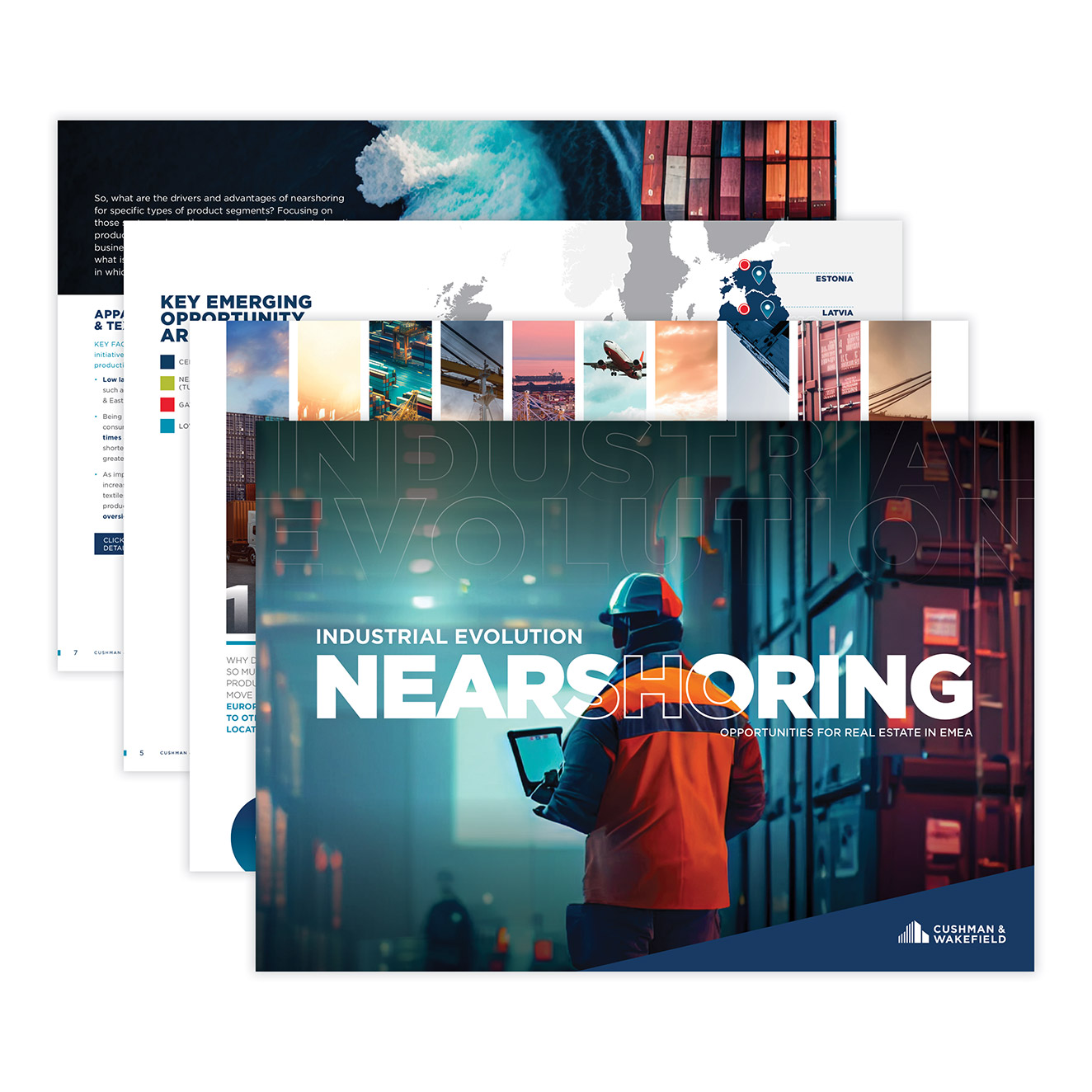This report provides valuable insight into the trend of nearshoring production and supply, which is increasingly important for businesses in today's global economy. It examines the drivers of nearshoring in EMEA and what it means to different types of businesses and their supply chains.
By downloading this report, you can gain a better understanding of the factors driving nearshoring decisions and how to recognize opportunities and consider risks in your own business.
The main topics include:
- The historical trend of businesses offshoring production to far-away locations, particularly in Asia Pacific.
- What is changing and driving the nearshoring phenomenon
- The impact of nearshoring on different types of businesses and their supply chains.
- How different countries are experiencing nearshoring
- What nearshoring means to locations and real estate
- How to recognize opportunities and consider risks that nearshoring represents from the perspective of occupier, developer and investor
What is nearshoring?
Nearshoring is the locating of production or supply to locations close to markets of consumption. This could involve reshoring (the movement of facilities that once were established in futher away locations back to home or near-to-home markets) or new investment in home or near-to-home markets where previously a further away location would have been considered.
Why is Nearshoring Becoming More Popular?
Recent global economic shocks and supply chain disruption have illuminated the length and complexity of supply chains. In addition, the rising costs of labour in and transporting goods from Asia, as well as geopolitical factors and a growing focus on sustainability and social impact, all add to the complexity and cost for manufacturers. These factors and more are driving businesses to examine their sourcing and supply chain strategies and they are increasingly considering nearshoring of production and supply.
The Impact on Different Types of Businesses and Locations
The trend toward nearshoring has significant implications for different types of businesses for different reasons. For instance, industries that require a high degree of customization or shorter lead times, such as the fashion industry, will likely benefit from nearshoring. Additionally, locations that already are or are close to existing manufacturing hubs, and have good infrastructure and a skilled workforce, are likely to attract more nearshoring investments as industries evolve. Sectors discussed in the report include:
- Apparel & Textiles
- Automotive
- Machinery, Electronic & Electrical Equipment
- Consumer Goods
The Impact on Different Locations
The opportunities for nearshoring are wider spread geographically than is perhaps currently understood. There is great opportunity in lower-cost, close-proximity Central & Eastern European countries and near-Europe countries like Türkiye and Morocco. But there will also be more investment in Western, Southern and Northern European countries, notably Spain and Portugal, (particularly where existing industries are evolving) as well. As a result of Brexit, the UK will see demand for local production for local consumption but will face challenges attracting investment for distribution to wider Europe. This report includes a detailed discussion on the impact of nearshoring in the following geographies:
- Central & Eastern Europe
- Türkiye
- Morocco
- Western, Southern & Northern Europe
- United Kingdom
Implications for the Property Market
The shift towards nearshoring also has implications for the property market. With businesses considering where to locate their production facilities closer to home markets, there is likely to be an increased demand for industrial floorspace in certain locations, for both manufacturing and logistics uses
Property considerations will largely be focused on newly-built facilities but will also represent opportunities to repurpose existing buildings. In addition, there will be an increasing focus on energy needs and particularly on sourcing sustainably-generated energy.







